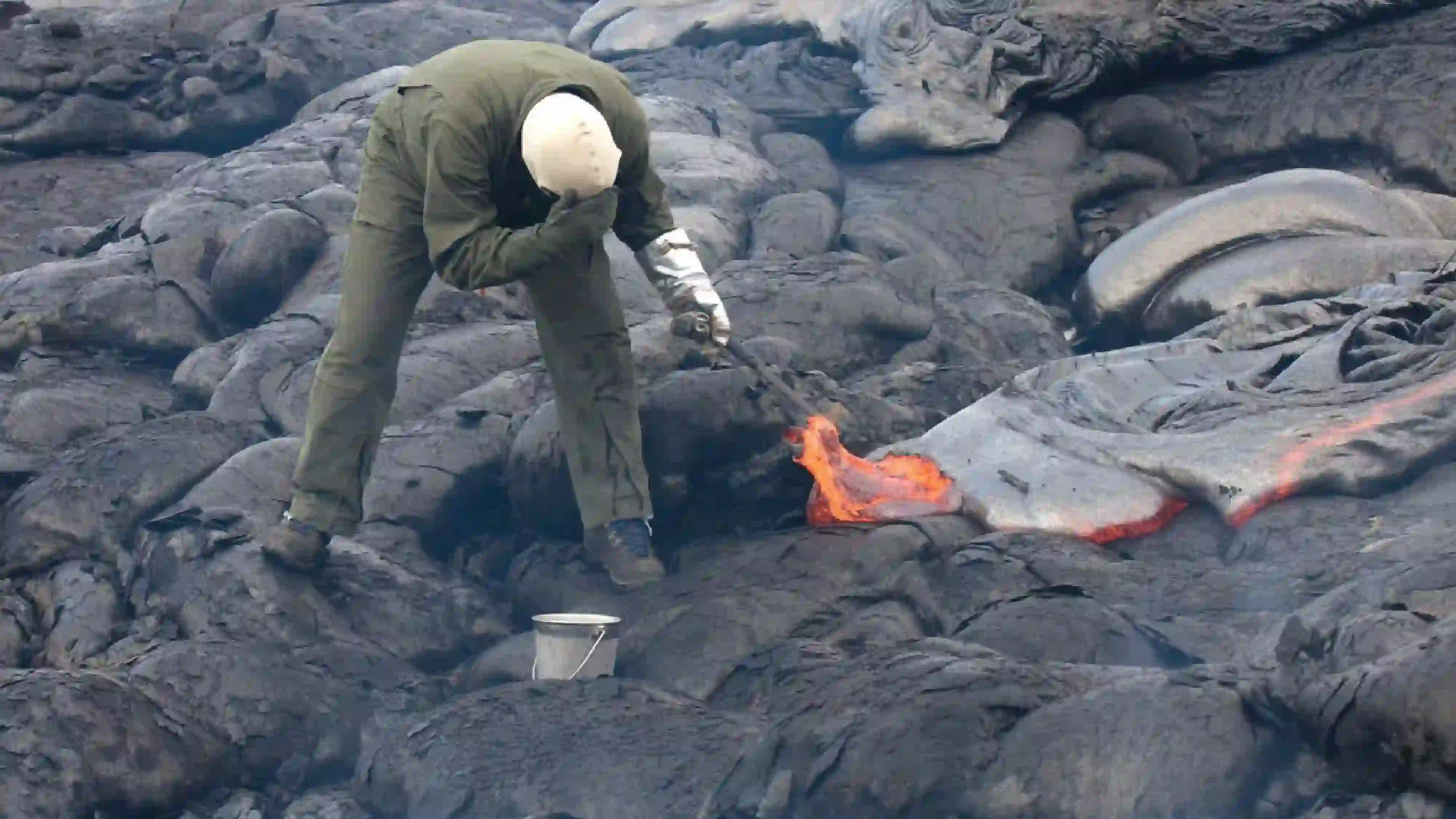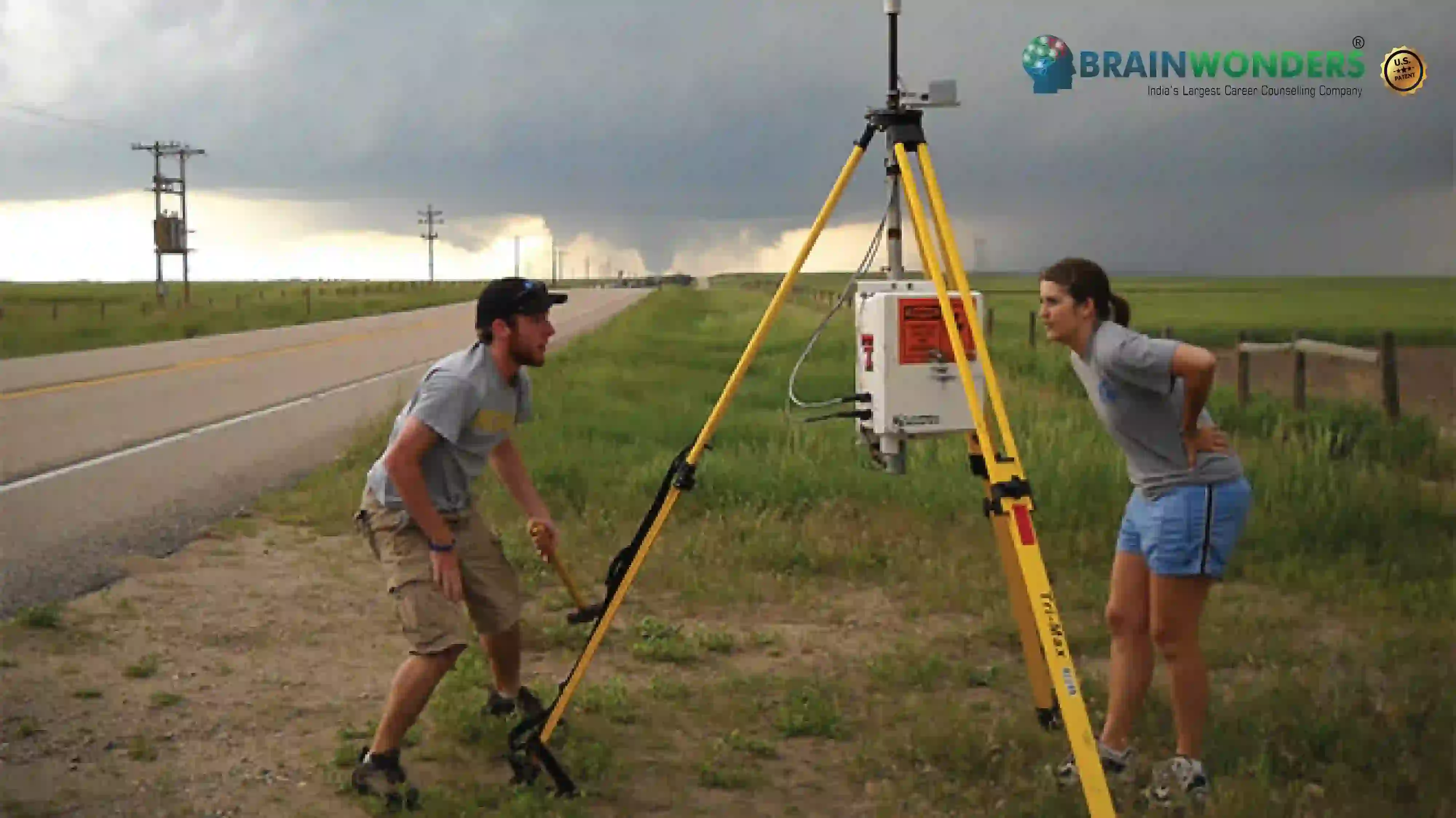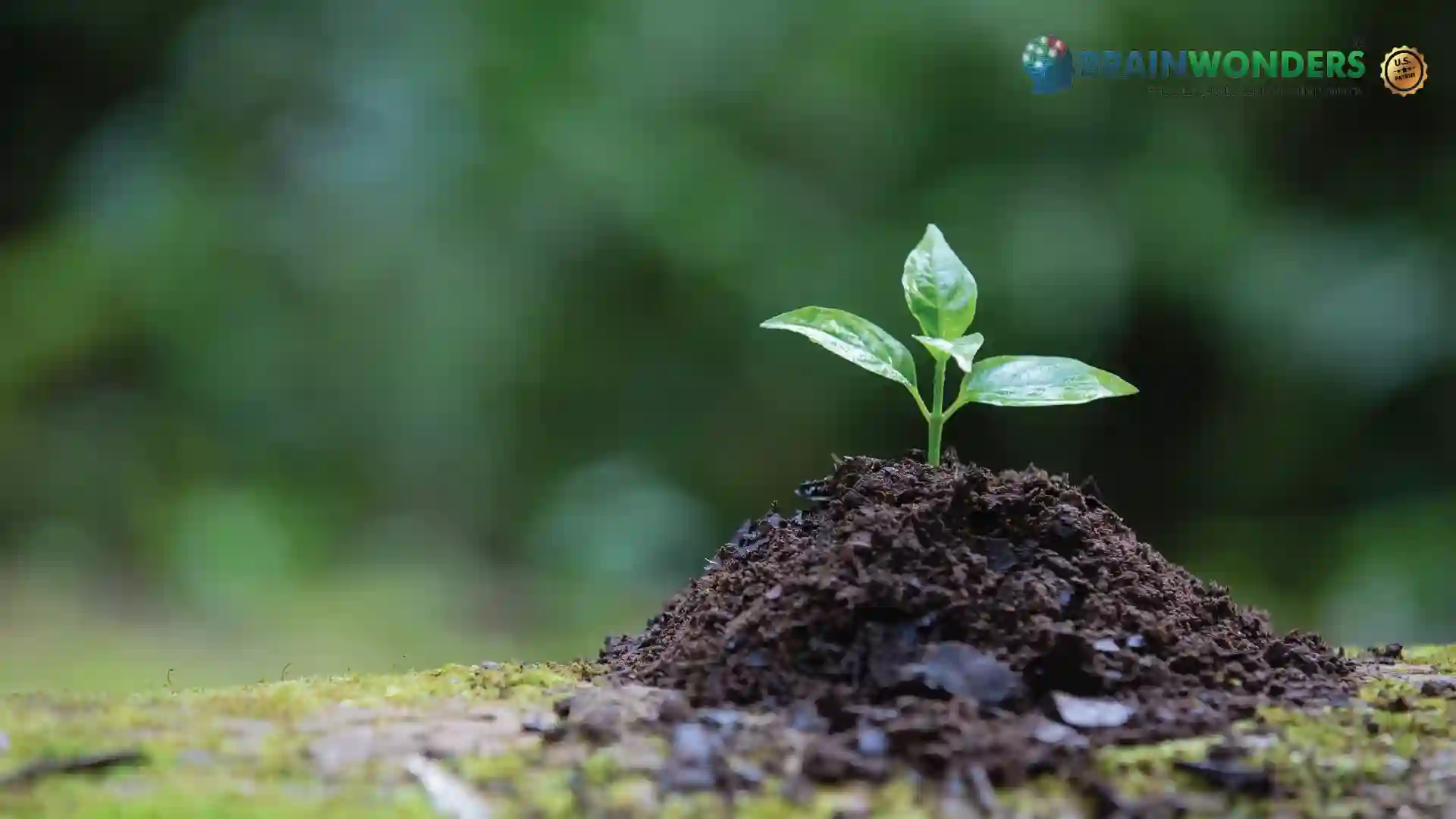How to become a Volcanologist
Overview, Courses, Exam, Colleges, Pathways, Salary

Overview
Who is Volcanologist ?
Volcanologists are scientists that study both active and dormant volcanoes. The study of a volcano is a highly educated specialist in geophysics. Active volcanoes are studied to understand the formation of molten rock (or magma) and the movement deep under the earth's surface. Volcanologists, get a great source of information from inactive volcanoes which are responsible for rock formations that were created by eruptions.
The Volcanologist also works as a detective to study volcanoes. This career is not a 'typical' career. Volcanologists work by observing and watching volcanoes erupt, sometimes they deal with paperwork in the office, flying in a helicopter and installing instruments, or attending scientific conferences. The volcanologist can also work as a paleontologist, geologist, geochemist, oceanographer, seismologist.
Typical day at work
What does Volcanologist do?
The roles and responsibilities of volcanologist includes:
- To study the deposits of volcanic eruptions and its processes
- To gather data about how and where volcanoes are likely to erupt
- Mapping the distribution of the rocks that make up the volcano
- To measure volcanic gravity, seismicity and magnetics
- To study and correlate changes in the shape of the Earth with deformation of the ground at volcanic eruptions
- To study volcanic products
- To conduct and plan field studies
- To prepare scientific report
Abilities and Aptitude needed
What are the skills, abilities & aptitude needed to become Volcanologist?
Becoming a volcanologist requires a combination of skills, abilities, and aptitude. Here are some qualities needed to pursue a career in volcanology:
- Scientific Knowledge: Volcanologists must have a strong foundation in earth sciences, including geology, geophysics, geochemistry, and volcanology. They need to understand the processes and dynamics of volcanic activity, including magma formation, volcanic eruptions, volcanic hazards, and volcanic landforms.
- Fieldwork and Observation: Volcanologists spend significant time conducting fieldwork in volcanic regions. They must have excellent observational skills to analyze volcanic features, monitor changes in volcanic behavior, collect samples, and make accurate measurements.
- Analytical and Research Skills: Volcanologists must possess strong analytical skills to study and interpret data related to volcanic activity. They research to understand the underlying processes, assess volcanic hazards, and contribute to the scientific understanding of volcanoes. They use various analytical techniques like chemical analysis, geophysical surveys, and data modeling.
- Critical Thinking and Problem-Solving: Volcanologists need to think critically and solve problems related to volcanic phenomena. They analyze complex data sets, assess risks, and make informed decisions in managing volcanic hazards. They also contribute to emergency response plans and communicate their findings to stakeholders.
- Communication and Collaboration: Volcanologists often work as part of multidisciplinary teams, collaborating with other scientists, engineers, emergency managers, and public officials. They need strong communication skills to effectively convey their research findings, present at conferences, publish scientific papers, and communicate with the public during volcanic crises.
- Physical Fitness and Outdoor Skills: Fieldwork in volcanic areas can be physically demanding and sometimes occur in remote or challenging environments. Volcanologists must be physically fit, adaptable to varying weather conditions, and possess outdoor skills to navigate rugged terrains and potentially hazardous conditions.
- Curiosity and Passion: A genuine curiosity about volcanoes, natural phenomena, and the Earth's processes is essential for a career in volcanology. Volcanologists should have a passion for scientific exploration, a willingness to learn continuously, and a desire to contribute to understanding volcanic systems.
- Resilience and Adaptability: Volcanologists often work in unpredictable and potentially hazardous environments. They must demonstrate resilience, adaptability, and the ability to handle stress and uncertainty during volcanic crises or challenging fieldwork situations.
- Technical Skills: Volcanologists use various technical tools and equipment, such as remote sensing instruments, data loggers, GPS devices, and laboratory equipment. Familiarity with these tools and techniques is necessary for data collection, analysis, and interpretation.
- Knowledge of Safety Protocols: Working around active volcanoes carries inherent risks. Volcanologists must be well-versed in safety protocols, risk assessment, and emergency procedures to ensure their team members' safety during fieldwork and volcanic monitoring.
Pathways
How to become an Volcanologist?
Entrance Exam
Entrance Exam for Volcanologist ?
Courses
Which course I can pursue?
Best Colleges
Which are the best colleges to attend to become an Volcanologist?
Industries
Which Industries are open for Volcanologist?
Volcanologists can find opportunities in various industries requiring expertise in studying and managing volcanic processes. Here are some industries where volcanologists are in demand:
- Geological Surveys and Research Institutions: Government geological surveys and research institutions employ volcanologists to conduct research, monitor volcanic activity, and contribute to a scientific understanding of volcanoes and associated hazards.
- Environmental Consulting Firms: Environmental consulting firms often hire volcanologists to assess volcanic hazards, conduct environmental impact assessments, and provide expert advice on land-use planning and risk mitigation strategies in volcanic regions.
- Government Agencies and Emergency Management Organizations: Government agencies responsible for disaster management and emergency response employ volcanologists to monitor volcanic activity, assess risks, and develop contingency plans in case of eruptions or volcanic crises.
- Geothermal Energy Companies: Volcanic regions often have geothermal resources that can be harnessed for renewable energy production. Volcanologists contribute to geothermal exploration, resource assessment, and management in collaboration with energy companies.
- Academic Institutions: Universities and research institutions employ volcanologists as professors, researchers, and mentors for aspiring scientists. They teach courses on volcanology, conduct research, and contribute to scientific advancements in the field.
- Mining and Natural Resources Companies: Mining companies operating in volcanic regions may hire volcanologists to assess volcanic hazards, evaluate the potential impact of volcanic activity on mining operations, and develop risk management strategies.
- Geotechnical Engineering: Volcanologists with expertise in geotechnical engineering can work in the engineering industry, providing insights into volcanic soil properties, slope stability, and engineering solutions in volcanic regions.
- Tourism and Recreation: Volcanic areas often attract tourists and outdoor enthusiasts. Volcanologists may work in the tourism industry, providing guided tours, educational programs, and interpretation services to enhance visitors' understanding and appreciation of volcanic processes.
- Science Communication and Outreach: Volcanologists can engage in science communication and outreach activities. They may work for science museums, educational institutions, or media outlets, disseminating knowledge about volcanoes, conducting public outreach programs, and increasing public awareness and understanding of volcanic processes.
- International and Intergovernmental Organizations: International organizations such as the United Nations, UNESCO, or the International Union of Geodesy and Geophysics (IUGG) may employ volcanologists to contribute to global scientific initiatives, policy development, and capacity building in volcanic hazard management.
internship
Are there internships available for Volcanologist?
Internship opportunities tailored explicitly for volcanologists may not be as common as in other fields. However, there can be internships or related programs that aspiring volcanologists can consider to gain valuable experience and further their skills. Here are a few avenues to explore:
- Research Institutions and Geological Surveys: Research institutions and geological surveys often offer internships for students and early-career scientists interested in volcanology. These internships provide opportunities to work with experienced researchers, assist in data collection, analyze samples, and contribute to ongoing research projects.
- Universities and Academic Programs: Universities with strong geology or earth sciences departments may have internship opportunities within their volcanology research groups. Interns can assist with fieldwork, laboratory analyses, and data interpretation under the guidance of faculty members.
- Volcano Observatories and Monitoring Centers: Volcano observatories and monitoring centers may offer internships for individuals interested in volcano monitoring and hazard assessment. Interns can assist in collecting data, monitoring networks, and analyzing volcanic data.
- Government Agencies and Emergency Management Organizations: Government agencies responsible for volcanic monitoring and disaster management may offer internships for aspiring volcanologists. These internships can provide insights into the operational aspects of volcano monitoring, risk assessment, and emergency response.
- Environmental Consulting Firms: Environmental consulting firms specializing in volcanic hazard assessment or geological studies may have internships. Interns can contribute to fieldwork and data analysis and assist in environmental impact assessments related to volcanic activity.
- Volcano Research Organizations and Field Schools: Some organizations and field schools focus specifically on volcanology and offer internship programs or educational courses. These programs provide hands-on experience in volcanic fieldwork, data collection, and exposure to various research techniques.
Career outlook
What does the future look like for Volcanologist?
The future for volcanologists is promising, with various career opportunities and continued demand for their expertise. Here's an overview of the career outlook for volcanologists:
- Scientific Research: Volcanologists contribute to ongoing scientific research on volcanoes, volcanic processes, and associated hazards. Advancements in technology and data collection methods offer new avenues for research, providing opportunities for volcanologists to deepen our understanding of volcanic behavior and improve hazard assessment.
- Hazard Assessment and Risk Management: As populations expand in volcanic regions, the need for accurate hazard assessment and risk management increases. Volcanologists are crucial in monitoring volcanic activity, assessing potential hazards, and developing risk mitigation strategies. It includes working with government agencies, emergency management organizations, and local communities.
- Environmental and Geothermal Applications: Volcanic regions often offer geothermal resources, which can be harnessed for renewable energy production. Volcanologists contribute to the exploration, development, and sustainable management of geothermal resources. They assess the potential for geothermal energy, monitor reservoirs, and provide insights into the environmental impacts of geothermal projects.
- Education and Academia: Volcanologists contribute to the education sector by teaching at universities, conducting research, and mentoring future generations of scientists. They play a vital role in shaping the understanding of volcanic processes and training the next cohort of volcanologists.
- Consultancy and Risk Assessment: Volcanologists may work as consultants for government agencies, environmental firms, and disaster management organizations. They provide expert advice on volcanic hazards, assist in land-use planning, contribute to environmental impact assessments, and offer guidance on risk reduction measures.
- Geotechnical Engineering: Volcanologists with expertise in geotechnical engineering contribute to the design and construction of infrastructure in volcanic regions. They assess slope stability, evaluate the effects of volcanic activity on construction projects, and provide recommendations for engineering solutions.
- Volcano Tourism and Outreach: The tourism industry often develops around volcanic areas. Volcanologists may be involved in volcano tourism, offering guided tours, providing educational programs, and contributing to public outreach initiatives to increase awareness and understanding of volcanic processes.







